Contents
Latina/o/x Education in Chicago
Latina/o/x Education
in Chicago
Roots, Resistance, and Transformation
Edited by
ISAURA PULIDO,
ANGELICA RIVERA,
and ANN M. AVILS

2022 by the Board of Trustees
of the University of Illinois
All rights reserved
1 2 3 4 5 C P 5 4 3 2 1
 This book is printed on acid-free paper.
This book is printed on acid-free paper.
Cataloging data available from the Library of Congress
LCCN 2022003331
ISBN 978-0-252-04450-2 (cloth : alk.)
ISBN 978-0-252-08657-1 (paper : alk.)
ISBN 978-0-252-05350-4 (ebook)
Contents
Nilda Flores-Gonzlez
Ann M. Avils, Isaura B. Pulido, and Angelica Rivera
Mirelsie Velzquez
Angelica Rivera
Lilia Fernndez
Jaime Alans
Cristina Pacione-Zayas
Erica R. Dvila and Ann M. Avils
Leticia Villareal Sosa
Gabriel Cortez
Isaura B. Pulido
Arlene Torres
LATINOS IN CHICAGO AND THE MIDWEST
Series Editors
Omar Valerio-Jimnez, University of Texas at San Antonio
Sujey Vega, Arizona State University
Founding Editor
Frances R. Aparicio
A list of books in the series appears at the end of this book.
This book is dedicated to the Latina/o/x community of Chicago
past, present, and futureincluding the many students, parents,
abuelas/os, community members, and organizers. Their commitment
to justice has created a spirit of resistance, hope, and power. We are
humbled to be able to share this work as a testimonio to the efforts
of those who have come before us, and we hope this edited volume
contributes to the continued forward movement of educational
equity for Latina/o/x students and families in Chicago.
Foreword
NILDA FLORES-GONZLEZ
L atinx presence in the Chicago Public Schools (CPS)the third-largest school district in the nationdates back to the 1950s, when increasing numbers of Mexican and Puerto Rican students began to fill the school systems rolls. In 2000 Latinxs comprised a third of the CPS student population. By 2020 they were almost half of the districts student population. The past seventy-year presence of Latinx students in CPS is marred by low educational attainment in a system that has largely failed to meet the needs of Latino students. Tracing seven decades of Latinx educational history in Chicago, this volume weaves together the educational struggles of Mexicans and Puerto Ricans.
Latina/o/x Education in Chicago is a welcome addition to the scholarly works examining the Latinx experience in Chicago. It joins other outstanding books in the University of Illinois Presss Latinos in Chicago and the Midwest Series that document Latinx history, challenges, and contributions in the region. Latina/o/x Education in Chicago is the first volume in the series to present a sophisticated analysis of Mexican and Puerto Rican schooling in Chicago. With much research on the educational experiences of Latinxs centering on the East and West coasts, this volume also fills a gap by examining how Latinos have fared in what was once dubbed the worst schools in the nation.
Using case studies and centering the analysis on critical race theory, the essays in this volume provide a sharp rebuttal of the myth of equal educational opportunity. Using the language of privatization, deregulation, and choice, neoliberal ideology normalizes educational inequality by shifting responsibility for its failures onto individuals, including teachers, students, families, and communities. The adoption of neoliberal ideals and practices has led to the defunding of public schools and the proliferation of unregulated and for-profit charter schools; the increase in high-stakes testing to assess teachers performance and student promotion; and the criminalization of youth that justifies zero-tolerance policies, the militarization and policing of schools, and the escalation of the school to prison pipeline. These policies and practices exonerate institutions from providing unequal educational opportunities while pointing at youth, families, and communities for their inability to access educational opportunity. Taken together, the essays in this volume show how Chicago-brand neoliberalism shapes educational policies and practices that in turn affect individual and community educational experiences. The larger story woven through the pages of this volume is about individual and community endurance in the face of adversity and systemic marginalization.
Divided into three sections, this volume tells a collective story of pain, struggle, and possibility for change. The first section of the volume traces the sociopolitical context that shapes the educational experiences of Latinxs in Chicago. Once hailed as desirable newcomers, as the number of Puerto Ricans (and Mexicans) grew in the city, so did their experiences with exclusionary policies and practices. Many Latinx students were placed in special education classrooms because of their lack of English fluency. They were also left out of school desegregation efforts as they were counted as whites in what were predominantly minority schools. Latinx students also experienced racialization and daily marginalization in schools. As I witnessed in the 1990s, most Latinx students attended underfunded schools that lacked adequate heating, classroom space, and bathroom facilities. They also faced uncaring, and often racist and cruel, teachers and counselors who doubted their abilities. Yet I have also witnessed young Latinxs, their families, and their communities resisting mistreatment and pushing back on schools by demanding meaningful change and access to educational opportunities.
The second section of the volume focuses on the counter-narratives that show how Latinx individuals, families, and communities resisted neoliberal policies and practices that marginalized them and cheated them out of educational opportunities. The three chapters that comprise this section show how neoliberal policies such as urban renewal in the 1960s1970s and gentrification since the 1980s resulted in displacement, increased segregation, and disinvestment in communities of color. It is during this period that CPS embraced contradictory policies and practices. In the mid-1980s, CPS underwent a reform that decentralized the educational system by calling on community involvement in school governance. The educational gap widened as high-performing schools were rewarded with increased resources while those struggling to meet benchmarks were subjected to scrutiny and supervision. At the same time, the school system entered in partnership with the criminal justice system to dole out heavy consequences for transgressions in school. As schools were furnished with metal detectors and heavy police presence on campus, students began experiencing punishment disproportionate to their actions. While the educational gap between white and Black/Latinx students widened during this period, a gender gap also widened as young men shouldered punishment stemming from their alleged gang activities in school. This trend toward community governance and increased criminalization of Latinx and Black students and their communities ensured unequal educational outcomes.
In its final section, this volume lays out possibilities for contesting educational inequality through collective action and the transformative power of art. The two chapters show how communities identify spaces of opportunity and healing and engage in creative ways for questioning and challenging educational inequality. From bold community actions, such as a hunger strike, to the impact of youth-led community organizations that use hip-hop to engage youth in civic action, these chapters show the creative ways in which communities can energize their members to effectively challenge inequality in their schools.

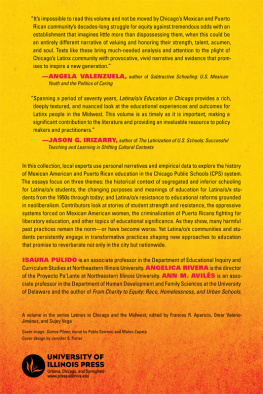
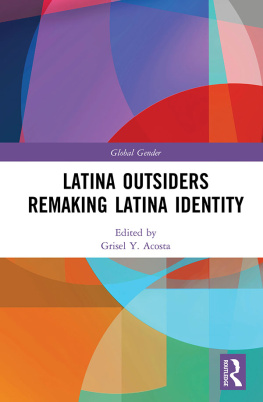

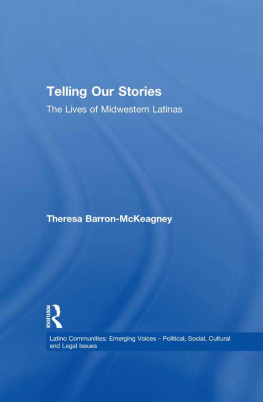
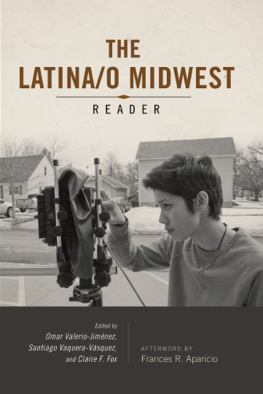
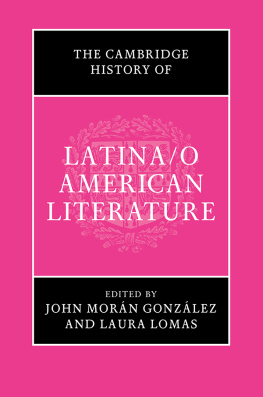

 This book is printed on acid-free paper.
This book is printed on acid-free paper.